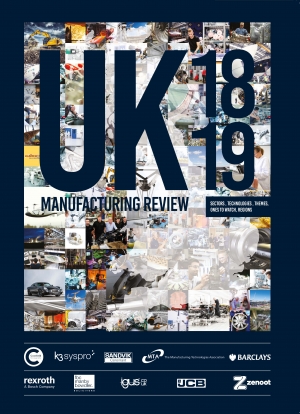5 minute read with link to UKMR website
UK Manufacturing Review of 2018, forecast for 2019
The 4th UK Manufacturing Review, launched this week, reveals the tenacity and depth of British manufacturers desperate to see an end to Brexit uncertainty.
Britain’s makers displayed dogged determination in 2018 despite 12-months with precious little clear vision for post-Brexit Britain, in a year defined by political disunity and discord.
With detailed coverage of 15 manufacturing sectors, 12 UK regions, numerous specific themes – from productivity and investment to young people and family businesses – as well as essential and new manufacturing technologies, the 4th Annual UK Manufacturing Review (UKMR) showcases the hard work, achievement and innovation in manufacturing in every corner of the country.
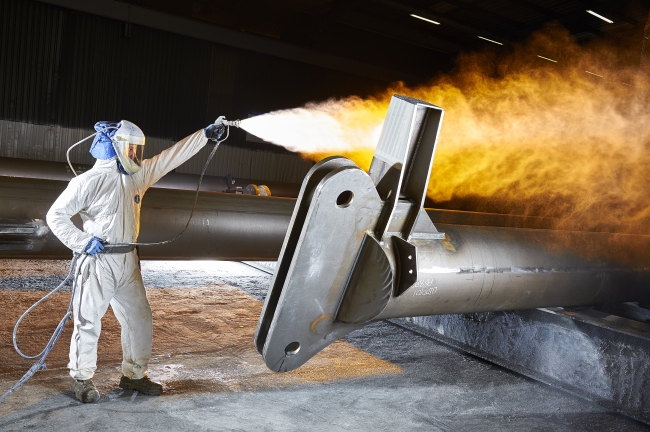
Picture: Adrian Waine / DuPont
Sectors
UKMR examines the changes in the automotive, aerospace, pharmaceutical, food & drink, plastics, textiles, electronics, electrical equipment, rail, leisure marine, steel and metals, packaging machinery, ceramics and remanufacturing sectors in 2018, with an outlook for 2019. The lack of certainty afforded by government on the final Brexit deal has not stopped many sectors moving on and growing, although in several cases the pace of growth has slowed. UKMR seeks to ask: what shape is UK industry in, in 2019?
While the car industry has serious challenges, capped by b recent decision to build the new X-Trail in Japan, rather than Sunderland, there are bright spots – Ford, for example, began building two new efficient diesel engine models in Bridgend and Dagenham in 2018. Niche segments in automotive and motorsport highlighted again what the UK is good at: Williams Advanced Engineering announced record revenues; gearbox specialist Xtrac expanded its factory; and motorcycle maker Norton revealed record exports including to Japan and the US. And Aston Martin floated on the London Stock Exchange in October.
Overall, though, mainstream UK automotive is in a tight corner, suffering from the fallout of “dieselgate” and Brexit-linked investment brakes – the SMMT reported 2018 car factory investment is 50 per cent down on 2017.
Aerospace
With ballooning order books and US primes coming to Britain to find suppliers, the aerospace sector is not paying attention to Brexit. The sector had another record year in 2018. The growth of the presence of Boeing – which built its first European factory in Sheffield in 2018 – Airbus, Pratt & Whitney, GE and the recovery of Rolls-Royce from its Trent 1000 issues meant that aerospace accredited engineering companies should have had a busy 2018. Firms like AE Aerospace and Bromford Industries reported more orders, and moved to new sites.
The main issue concerning the sector is the same as the car industry’s: the slow down in China. This important market for aircraft could well cool the pace in 2019.
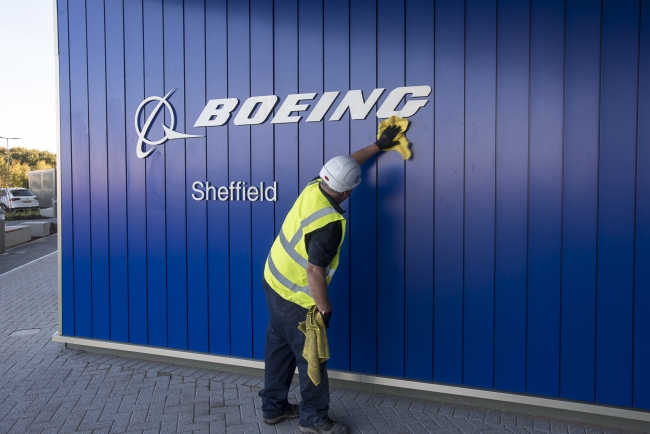
Picture: Boeing
Food & Drink
Increased ingredient costs, exchange rate volatility and retail market consolidation are the key risks to food & drink business success in 2018 and into 2019, according to the Food & Drink Federation. Retailer discounting continues to be the fly in the ointment for the UK’s biggest manufacturing sector, plus there are big concerns over access to low cost labour for picking, packing and manufacturing, post-Brexit.
There is factory investment in food across the UK, with multi-million £ spending by Cranswick, Quorn, Costa, Montezuma and others. Reduction in the consumption of red and white meat and the effect of the sugar tax are other features affecting the vast food industry, the biggest manufacturing segment in the country.
Investing for growth
Across the UK, 2018 was characterised by initiatives, clusters, programmes and projects trying to boost manufacturing investment and growth.
Ceramics are making a comeback. Statistics reveal that the economic contribution of the ceramics industry has grown 44 per cent since 2009 with £2 billion in total UK ceramics sales. The sector is bullish, boosted by the Ceramic Sector Deal.
Britain’s leisure marine industry is flying again, buoyed by a low £ and high demand for Made in UK yachts after a tough post-recession period, with investments from premium brands including Fairline, Princess, Spirit Yachts and smaller companies.
There is investment in the until-recently declining British steel industry. However, all the money from Liberty, Grey Bull Capital and British Steel cannot disguise the fact that UK steel producers pay 50% more for electricity than French & German competitors.
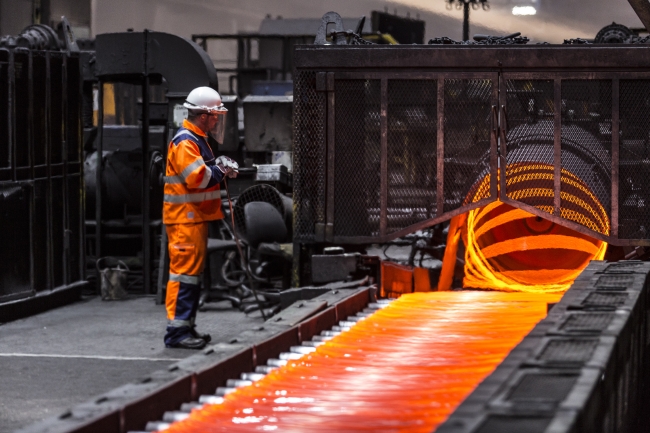
Picture: British Steel
Electrical equipment
Despite the decision by Sony to disinvest in the UK and Philips to close its AVENT site in Suffolk, the strong domestic market for industrial machinery, consumer goods and electric motors means there is a strong likelihood of at least maintaining existing levels of production in the electrical equipment market.
Challenges in Textiles
The UK textiles industry is more active than it has been for decades, with the demand for ‘Made in the UK’ labels rising, due quality perceptions. But challenges such as skills shortages, ethics, costs of raw materials and retailer decline threaten to derail the sector’s resurgence before its recovery has had a chance to consolidate.
In other news last year:
A graphite-skinned aeroplane was manufactured by UC Lancashire.
The UK is the largest EV (electric vehicle) manufacturer in Europe.
Britain’s battery design and manufacturing infrastructure is expanding, from Hyperbat to the new battery plant in Sunderland. Williams Advanced Engineering and Unipart announced the exciting Hyperbat joint venture last year. This manufacturing facility, which is opening in 2019, will produce batteries for future hybrid and electric vehicles
Beattie Passive’s energy efficient ‘volumetric modular homes’, manufactured in Norfolk, require 90% less heating than houses built using standard techniques. They exceed current Passivhaus standards.
Gestamp is part of an Advanced Propulsion Centre funded project to validate the use of the Hot Quench Forming (HQF) process for body-in-white and chassis applications. The process allows complex components to be formed from ultra-high-strength aluminium.
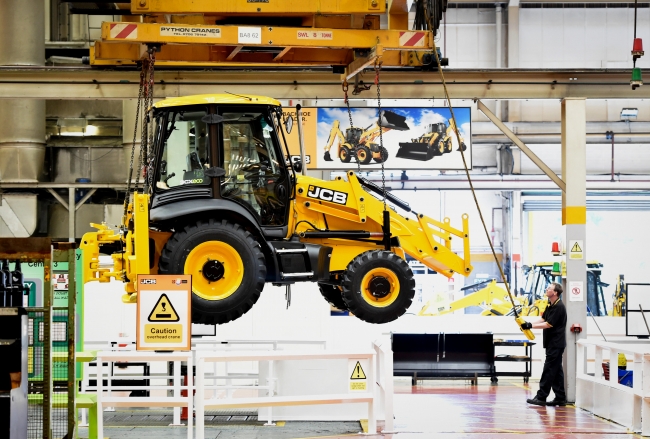
Picture: JCB
Across the regions, covering the sectors
UKMR 2018/19 reports on exciting developments from manufacturing companies across 12 UK countries and regions, and several important manufacturing technologies including advanced materials, additive manufacturing, smart metrology, robots and robotics and more. It also provides unmatched coverage of the big themes affecting this sector: the labour pool, pay, investment, exports, encouraging the young into manufacturing careers, and much more.
The forecast for 2019, overall, is positive, with UKMR sponsor Barclays pointing to higher government spending and short-term tax cuts announced in the November Budget expected to boost growth in 2019, if not by much.
